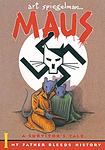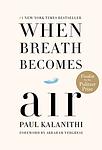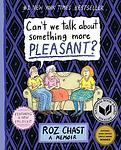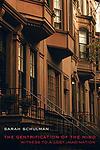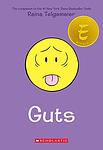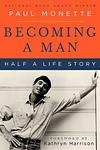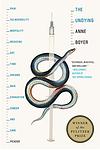The Greatest "Autobiography, Medicine" Books of All Time
Click to learn how this list is calculated.
This list represents a comprehensive and trusted collection of the greatest books. Developed through a specialized algorithm, it brings together 300 'best of' book lists to form a definitive guide to the world's most acclaimed books. For those interested in how these books are chosen, additional details can be found on the rankings page.
Genres
Autobiography is a literary genre that focuses on the life story of the author. It is a first-person account of the author's experiences, thoughts, and emotions, often including significant events and milestones that have shaped their life. Autobiographies can be written by anyone, from famous public figures to ordinary people, and can cover a wide range of topics, including personal growth, career achievements, struggles, and relationships. This genre provides readers with a unique insight into the author's life and perspective, making it a popular and engaging category of books.
The "Medicine" category of books encompasses a wide range of topics related to healthcare, including medical research, clinical practice, pharmacology, and public health. These books may cover topics such as disease prevention, diagnosis, treatment, and management, as well as the social, ethical, and political issues surrounding healthcare. The category includes both academic and popular works, and is intended for healthcare professionals, students, and anyone interested in learning more about medicine and healthcare.
Countries
Date Range
Reading Statistics
Click the button below to see how many of these books you've read!
Download
If you're interested in downloading this list as a CSV file for use in a spreadsheet application, you can easily do so by clicking the button below. Please note that to ensure a manageable file size and faster download, the CSV will include details for only the first 500 books.
Download-
1. Maus by Art Spiegelman
This graphic novel tells the story of a Holocaust survivor, as narrated by his son. The unique use of animals to represent different nationalities and ethnic groups adds a distinctive layer to the narrative. The protagonist's father recounts his experiences as a Polish Jew during World War II, offering a poignant depiction of the horrors of the Holocaust. The narrative also explores the complex father-son relationship, revealing the impact of such traumatic historical events on subsequent generations.
-
2. Christ Stopped at Eboli: The Story of a Year by Carlo Levi
The book is a memoir about the author's year of exile in a remote region of southern Italy during the fascist regime. It depicts the harsh living conditions, poverty, and backwardness of the area, where the peasants' lives are ruled by superstition and tradition. Despite the difficulties, the author finds beauty and dignity in the people and their way of life, and he paints a vivid picture of their culture, beliefs, and struggles. The title refers to the locals' belief that they have been forgotten by modernity and even by God.
-
3. Memoirs of My Nervous Illness by Daniel Paul Schreber
The book is a personal account of a prominent German judge's struggle with severe mental illness. It provides a detailed and vivid description of his experiences with psychosis, hallucinations, and delusions, which he attributes to divine intervention and cosmic forces. The author's attempt to understand and make sense of his condition forms the core of this memoir, and his insights have been influential in the fields of psychology and psychiatry. His narrative is a unique exploration of the mind and its relationship with reality, providing an intimate perspective on mental illness.
-
4. When Breath Becomes Air by Paul Kalanithi
This poignant memoir is a reflection on life and death by a young neurosurgeon who is diagnosed with terminal lung cancer. He grapples with the role reversal from doctor to patient, and confronts the reality of his mortality. The narrative explores the intersection of medicine and philosophy, and the meaning of life when faced with death. Despite his deteriorating health, he continues to find joy in his relationships and work, leaving behind a powerful message about the value of every moment.
-
5. The Noonday Demon by Andrew Solomon
"The Noonday Demon" is a comprehensive exploration of depression, drawing on the author's own struggle with the illness and interviews with fellow sufferers, doctors, and scientists, drug designers, and philosophers. It examines depression in personal, cultural, and scientific terms, covering aspects like the complexities of different treatments and the impact of the disease on various demographic populations. The book also delves into the thorny moral and ethical questions posed by emerging biological explanations for mental illness.
-
6. Can’t We Talk About Something More Pleasant? by Roz Chast
"Can't We Talk About Something More Pleasant?" is a graphic memoir by Roz Chast that explores her relationship with her aging parents as they approach the end of their lives. Chast uses her signature humor and illustrations to navigate the difficult topics of illness, death, and family dynamics. The book captures the universal experience of caring for aging parents and the emotional toll it can take on adult children.
-
7. The Gentrification of the Mind by Sarah Schulman
"The Gentrification of the Mind" is a critical examination of the impact of the AIDS epidemic on American society and culture, particularly in relation to urban gentrification. The author argues that the loss of a generation of artists, writers, and thinkers due to the AIDS crisis led to a homogenization of culture and thought, similar to the way gentrification leads to a homogenization of urban neighborhoods. The book is a powerful critique of the erasure of diverse voices and experiences, and a call to remember and honor the lost history of those affected by the epidemic.
-
8. Smile by Raina Telgemeier
"Smile" is a heartfelt graphic novel memoir that follows the life of Raina, a sixth-grade girl who experiences a life-changing accident when she injures her two front teeth. Through a series of dental surgeries and awkward encounters, Raina navigates the ups and downs of middle school, friendship, and self-discovery. With her signature humor and relatable storytelling, Raina's journey of finding her own voice and embracing her imperfections is both inspiring and empowering.
-
9. Borrowed Time by Paul Monette
"Borrowed Time" is a memoir that chronicles the life of a man and his partner, both diagnosed with AIDS. The narrative provides a deeply personal and raw account of their battle with the disease, highlighting the fear, courage, and love they experienced. The book also sheds light on the early years of the AIDS epidemic in the United States and the lack of understanding and stigma associated with the disease at the time.
-
10. What The Eyes Don't See by Mona Hanna-Attisha
"What The Eyes Don't See" is a gripping memoir that recounts the true story of a courageous pediatrician who unraveled the devastating water crisis in Flint, Michigan. Faced with skepticism and resistance from powerful institutions, she relentlessly pursued justice for the community, ultimately exposing the government's negligence and the toxic lead contamination that had been poisoning the city's residents for years. This powerful narrative sheds light on the importance of activism, resilience, and the fight for truth in the face of adversity.
-
11. Becoming a Man: Half a Life Story by Paul Monette
"Becoming a Man: Half a Life Story" is a poignant autobiography that explores the author's journey of self-discovery and acceptance as a gay man in America. The narrative delves into his struggles with his identity, his experiences of homophobia, his life in the closet, and his eventual coming out. The book also documents his relationships, particularly with his long-term partner who succumbed to AIDS, and his own battle with the disease. The memoir serves as a powerful commentary on the societal attitudes towards homosexuality during the 20th century.
-
12. The Undying: Pain, vulnerability, mortality, medicine, art, time, dreams, data, exhaustion, cancer, and care by Anne Boyer
The book is a deeply personal and critical exploration of the author's experience with breast cancer. The narrative addresses the physical and emotional toll of the disease, the complexities of the medical industry, and the societal expectations and realities of illness. It also delves into the intersection of art, data, and time in the context of health and mortality. This work is not just a memoir of the author's journey with cancer, but also a critique of the ways in which illness is perceived and treated in contemporary society.
Reading Statistics
Click the button below to see how many of these books you've read!
Download
If you're interested in downloading this list as a CSV file for use in a spreadsheet application, you can easily do so by clicking the button below. Please note that to ensure a manageable file size and faster download, the CSV will include details for only the first 500 books.
Download